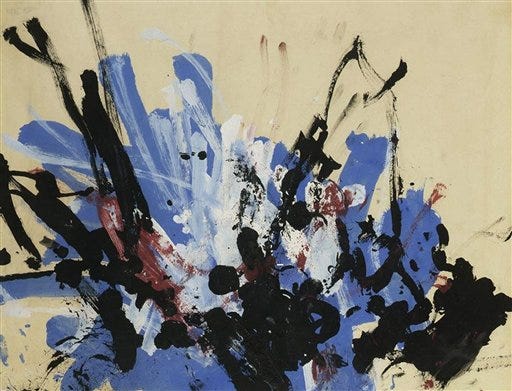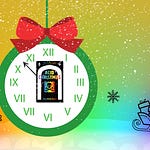*All quotes are from the essay “Peonies” from Intimations, by Zadie Smith, unless otherwise noted.
All views are my own and do not reflect the views of Zadie Smith unless quoted directly.
“Talking to yourself can be useful. And writing means being overheard.” - Zadie Smith
In this piece, I’ll share my takeaways from Zadie Smith’s first essay in the book, Intimations, entitled “Peonies.”
Readers and writers hail Jamaican British author Zadie Smith as contemporary fiction’s most groundbreaking voice, and her new short collection of essays, Intimations, has won the Pen/Audible service award, an award previously given to Toni Morrison. Written during Covid-19 lockdown, Intimations tackles “ideas, feelings and questions, prompted by an unprecedented situation.”1
In the intro before “Peonies,” Smith offers a quote from Stoic philosopher Marcus Aurelius:
“No role is so well suited to philosophy as the one you happen to be in right now.” — Marcus Aurelius.
Peonies:
“Real life has no chapter headings, paragraphs, periods, or ellipses in which you might catch your breath. It just keeps coming at you.” — Zadie Smith
We are reading and imagining Zadie Smith writing as we read. Perhaps she is alone in a New York City apartment gazing at a sunless sky through cold glass. She plans her days in 45-minute increments. She wants a cashless world of machines and no human interactions while shopping. Chit chat usurps her time. (We might also infer that cashless shopping is germless shopping, that small talk spreads disease.)
With extra minutes, Smith used to buy herself lattes at the coffee shop, now she looks through windows with bars at spring flowers alongside other middle-aged women. Upon seeing some tulips, she wishes they were peonies, so decides to make them peonies in her essay. This gives rise to a series of thoughts on the efforts writers make to control reality.
“Writers take shapeless bewilderment and pour it into a mold of their own devising.” — Zadie Smith.
The first drawing by a monkey, after being forced to draw by scientists, was of the bars of its own cage. This is an anecdote in Nabokov’s novel, Lolita, one that Smith loves, but maybe doesn’t believe. The scientists imprisoning the monkey wish the monkey would scrawl forth something profound with its stick of charcoal, but instead they receive only rudimentary documentation of current conditions. Is writing like this? Most of the time, though we wish it weren’t.

The human is caged by its instincts, by nature, and by circumstance.
In her youth, Zadie Smith felt caged by her gender and her biological nature. She resented her menstrual and hormonal cycles and the fact that men didn’t experience them. She equally resented the socially constructed possibilities for women, which she saw as:
Spinster
Crone
MILF
Childless
Or a patronizable, benign, sweet old lady—a grandma.
In rebellion against these archetypes, Smith refused to track her menstrual cycle, which she resented equally deeply. By doing so, she attempted to reject internalized misogyny. She wanted to ignore her own womanish biology and body.
This ignoring was an attempt to gain control and power over nature.
Obsession and a strong desire for control are common among writers.
“Writing is control.” — Zadie Smith
She elaborates that we should rename creative writing MFA departments as “Controlling Experience Departments,” because writing is less about creating and more about controlling experiences.
Each novel you read or write provides a wide swath of attitudes you might adopt for yourself, but “sometimes it is right to submit to love and wrong to resist affection. Sometimes it is wrong to resist disease and right to submit to the inevitable. And vice versa.” — Zadie Smith
Zadie Smith felt forced to submit during covid, and she maybe resented that submission, but also resented that even her feelings around the submission became political. Her emotions were forced by the public into the political realm, when really, she only desired to feel them as feelings.
Writing is like that—DoubleThink; we know we’re deluded, but we must swim in the delusions to make something real.
The Dog Kennel by the Palace
Kierkegaard offers a parable called “The Dog Kennel by the Palace.” He posits that the thinker, or philosopher, creates a complex system of thought, but this system stands like an imaginary castle, and the thinker lives in a dog kennel beside it.
Kierkegaard’s dog kennel is like being a writer in a woman’s body. We want a true self, under our own full control (the castle), but we will forever remain in our hormonal and decaying bodies in a socially-constructed moment in time (the dog kennel).
We are always other than what we wish we were: free.
As the monkey draws its cage, we write our castle from the kennel.
Like the peonies forced up from the ground by nature and spring, so too are we mandated into movements and choices from the outside and the inside.
“Writing is all resistance.” — Zadie Smith
“Peonies” is an exercise in mashing metaphors like potatoes. Within only ten minimal pages, and rimmed with white space, using probably only 2,000 words, Smith gives us four strong metaphors to understand the submission aspects of both writing and life during a pandemic. She offers poetic comparisons on the woman’s body, Nabokov’s monkey painting in a cage, Kierkegaard’s dog kennel by the palace, and her own tulips turned to peonies.
Smith proves again her profound ability to gather the gems of deep thinkers from the past and morph their insights into vivid comments on our present times.
Have you read Zadie Smith? Which of her metaphors offered in “Peonies” resonates the most with you?
From the back-cover synopsis of Intimations, by Zadie Smith.


















Share this post